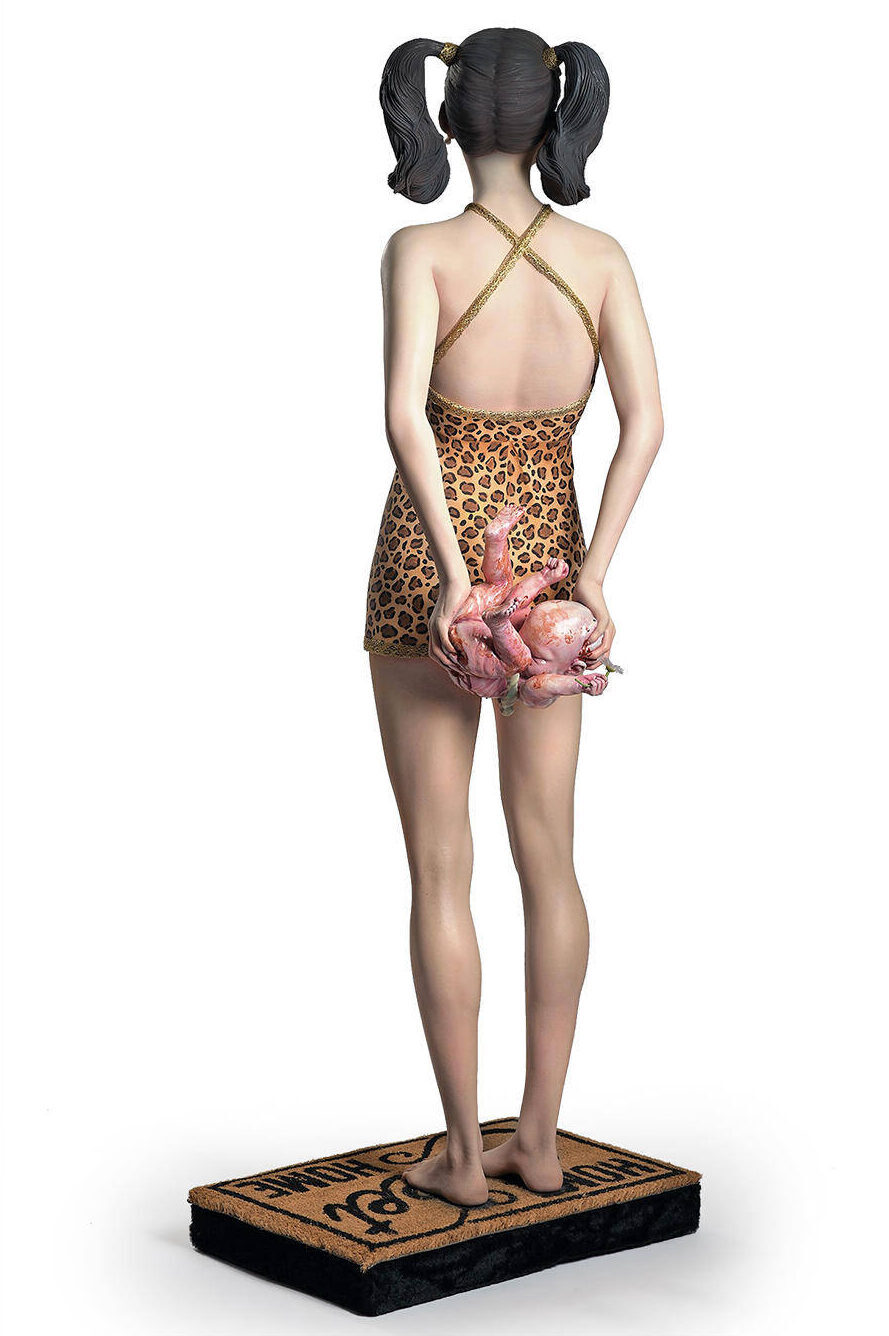Title: Virgin Touch
Medium: Sculpture
Material: eco-plastic, polyester, acrylic
Size: 170/67 x 63/24,8 x 55/21,6 cm/in
Year: 2022
Collection: Turbofolk



Unveiling Formalism
The sculpture, titled Virgin Touch, presents an initial impression of a saintly depiction—a naive woman contemplatively gazing upward, seemingly concealing something behind her back. Positioned on a pedestal inscribed with “sweet home,” she wears coquettish attire. Upon viewing the sculpture from behind, a cruel reality unfolds. The woman cradles her newborn, yet the composition suggests a lack of acceptance. The artwork personifies the act of life’s murder, delving into the decision for abortion. It becomes an exaggerated query on responsibility, challenging ethical boundaries between life and homicide. This sculpture serves as a poignant piety for all sadly conceived and unborn lives.
Ethical Discourse
Delving into the theoretical dimension, Virgin Touch initiates a profound discourse on the responsibility associated with the sanctity of life. The juxtaposition of the saintly facade and the concealed tragedy behind reflects society’s complex ethical quandaries. The sculpture engages with the viewer’s conscience, provoking contemplation on the moral thresholds surrounding life choices. The artist delves into the ethical spectrum, prompting viewers to question the boundaries of accountability and the societal implications of decisions that transcend individual lives.
Life’s Fragility
Virgin Touch holds immense significance as a thought-provoking commentary on the ethical dimensions of abortion and the societal responsibility for the unborn. It prompts reflection on the delicate balance between personal autonomy and the moral duty towards potential life. The sculpture transcends its physical form, becoming a symbolic representation of the ethical dilemmas surrounding reproductive choices. In this exploration of responsibility and life’s fragility, Virgin Touch emerges as a powerful and poignant testament, challenging viewers to confront the complexities inherent in decisions that shape the course of human existence.
How many of them have experienced this, intentionally or spontaneously? How do such experiences differ from one another? Is there a difference between a person and a human being? When does life begin and who gets to decide it? Does a child have a right to be born healthy? What if she is being torn to death inside too?